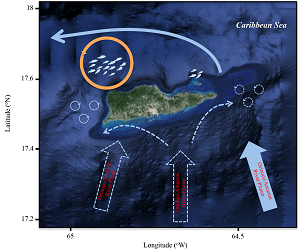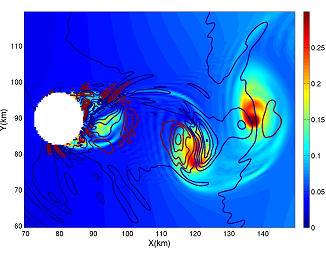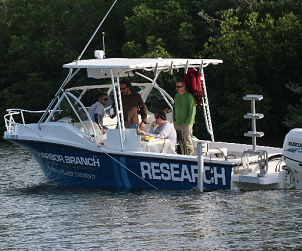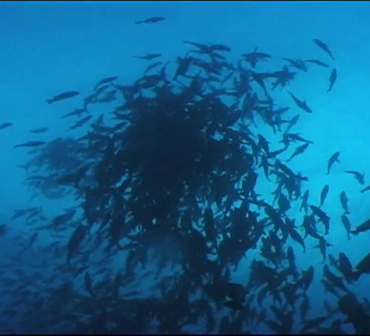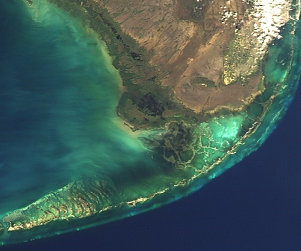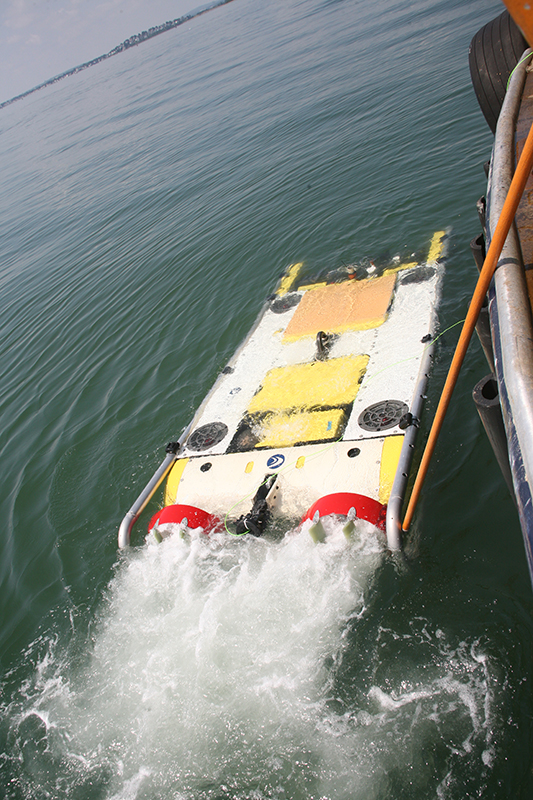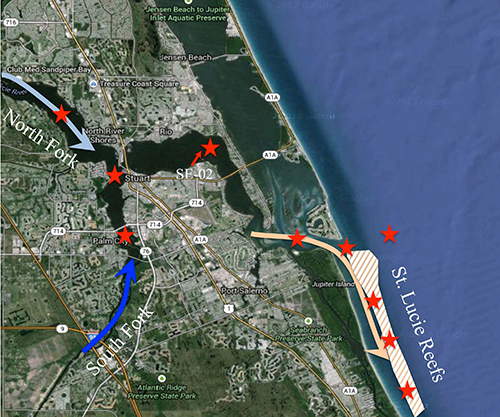Ocean Dynamics & Modeling
Overview
The oceans are a place of constant motion, and water movement is the basis of the functioning and health of marine ecosystems. In addition to transporting plankton, larvae, sediments, nutrients and pollutants, ocean circulation helps determine global climate through storage and transfer of energy and greenhouse gases. The ability to observe and model these processes enables a broad range of descriptive and predictive capabilities.
Ocean dynamics and modeling research at Harbor Branch emphasizes numerical modeling of the key coupled physical, chemical and biological processes and their impacts on marine ecosystem functions and coastal environments. The research topics include zooplankton and larvae transport and ecosystem connectivity, resilience and sustainability of fish habitats, water quality, nutrient and carbon cycles, harmful algal blooms and ocean acidification.
Ocean modeling also relies on extensive observations: In collaboration with other groups, our research uses cutting-edge technology to efficiently collect high-resolution data for the study of oceanic processes and for the evaluation of related numerical models.
RESEARCH AREAS
GRADUATE PROGRAMS
The Ocean Dynamics & Modeling program welcomes students in the following FAU graduate programs:
More information on all FAU graduate programs can be found here.

